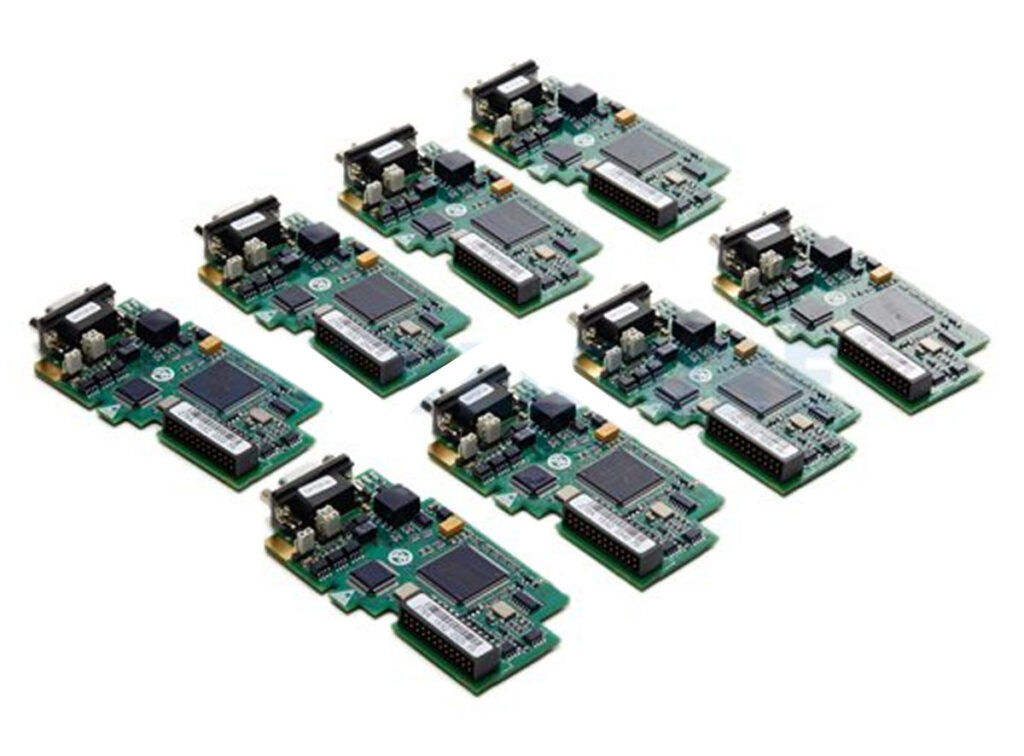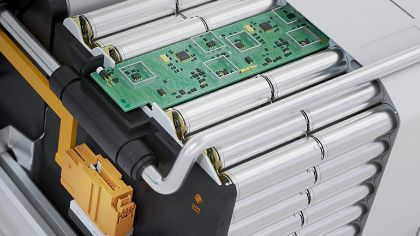Revolutionizing Small Batch PCB Assembly for the Future!

Small batch PCB assembly refers to the process of assembling small quantities of printed circuit boards (PCBs). This can be done manually or using automated equipment.
The process typically involves the following steps:
- Prepping the PCB: This involves cleaning the PCB to remove any contaminants that might affect the assembly process.
- Placing components: Components such as resistors, capacitors, and ICs are placed on the PCB using automated equipment or by hand, depending on the size of the batch.
- Soldering: The components are then soldered onto the PCB using a soldering iron or automated soldering equipment.
- Testing: The assembled PCB is tested to ensure that it is functioning properly.
Small batch PCB assembly is often used for prototyping and small-scale production runs. It allows companies to produce small quantities of PCBs without the need for large-scale production equipment and processes.
In the ever-changing world of technology, it’s important to stay up-to-date with the latest advancements in the industry. One such advancement has been the rise of small batch PCB assembly, which has revolutionized the way that PCBs are manufactured. In this blog post, we’ll explore the benefits, challenges, and future of small batch PCB assembly.
What is small batch PCB assembly?
Small batch PCB assembly is the process of producing printed circuit boards (PCBs) in small batches. This process is beneficial for those who lack the resources to produce large-scale PCBs. It also allows for much more flexibility in terms of design, as small batch assembly allows PCBs to be customized to fit specific needs.
The process of small batch assembly involves the use of specialized machinery and techniques. This includes the use of automated pick-and-place machines, as well as hand-soldering for components that are too small for automated assembly. Once the components have been placed and soldered, the PCB is tested to ensure that it meets the required specifications.
Benefits of small batch PCB assembly
Small batch PCB assembly has several advantages over large-scale production. For one, it is much more cost-effective. Since fewer resources are required, small batch production can often be done at a fraction of the cost of large-scale production.
Another benefit of small batch assembly is that it allows for greater flexibility in terms of design. Since the process is done in smaller batches, it is much easier to make changes to the design if needed. This can be especially helpful for those who are developing new products and need to quickly make changes as they go.
Finally, small batch production allows for quicker turnaround times. Since fewer resources are required, it is much easier to quickly produce a small batch of PCBs. This is especially beneficial for those who need their PCBs quickly and don’t have the time or resources to wait for a large-scale production run.
Small batch PCB assembly statistics
Small batch PCB assembly is becoming increasingly popular. According to statistics from the IPC, the number of small batch PCBs produced in 2020 was over 25% higher than in 2019. This is due to the fact that more and more companies are turning to small batch production for their PCB needs.
The IPC also found that the average cost of a small batch PCB is significantly lower than that of a large-scale PCB. This is due to the fact that fewer resources are needed for a smaller production run.
Finally, the IPC found that the average lead time for small batch PCBs is much shorter than that of large-scale PCBs. This is due to the fact that fewer resources are required and the process is much faster.
Automating small batch PCB assembly
As technology continues to advance, more and more companies are embracing automation in their PCB production processes. Automation has several benefits, the most significant of which is increased efficiency. By automating small batch PCB assembly, companies can produce PCBs more quickly and cost-effectively.
Automation also allows for greater accuracy and precision in PCB production. By automating the pick-and-place process, companies can ensure that components are placed accurately and precisely. This is especially important for those who need to produce high-quality PCBs that meet stringent requirements.
Finally, automation allows for greater flexibility in terms of design. By automating the pick-and-place process, companies can quickly make changes to their designs without having to completely re-do the entire process. This can be especially helpful for those who need to quickly make changes to their designs as they go.
Developments in small batch PCB assembly
As technology continues to advance, so too do the developments in small batch PCB assembly. One such development has been the emergence of low-cost automated pick-and-place machines. These machines are much more affordable than their larger counterparts and can be used to quickly produce small batches of PCBs.
Another recent development has been the emergence of 3D printing technology. This allows companies to quickly and cheaply produce PCBs with complex designs. 3D printing also allows for greater flexibility in terms of design, as 3D printed PCBs can be quickly and easily changed to fit specific needs.
Finally, the emergence of artificial intelligence and machine learning has allowed for even more advancements in small batch PCB assembly. AI and ML can be used to automate the pick-and-place process, as well as to optimize the design of the PCBs for greater efficiency.
Challenges of small batch PCB assembly
Despite the many benefits of small batch PCB assembly, there are still some challenges that need to be addressed. One such challenge is that of cost. While small batch PCBs are much cheaper than large-scale PCBs, the cost of the necessary equipment can still be quite high. This can be especially difficult for small companies who lack the resources to invest in the appropriate equipment.
Another challenge is the lack of standardization. Since small batch PCBs are often customized for specific needs, it can be difficult to ensure that the PCBs are produced to the required standards. This can be especially problematic for those who need to ensure that their PCBs meet stringent requirements.
Finally, there is the challenge of scalability. While small batch PCBs are great for those who need to quickly produce a few boards, they are not ideal for those who need to produce large numbers of PCBs. This can be especially problematic for those who need to produce PCBs in large quantities.
Future of small batch PCB assembly
As technology continues to advance, so too does the future of small batch PCB assembly. One of the most significant developments that is likely to occur is the emergence of cheap and efficient automated pick-and-place machines. These machines will allow companies to quickly produce small batches of PCBs with greater accuracy and precision.
Another development that is likely to occur is the emergence of 3D printing technology. This will allow companies to quickly and cheaply produce PCBs with complex designs. 3D printing will also help to reduce the cost of small batch PCBs, as fewer resources will be required to produce them.
Finally, artificial intelligence and machine learning are likely to play an increasingly important role in small batch PCB assembly. AI and ML can be used to automate the pick-and-place process, as well as to optimize the design of the PCBs for greater efficiency.
Small batch PCB assembly services
For those who need assistance with small batch PCB assembly, there are a number of services available. These services can help companies quickly and cost-effectively produce their PCBs. Some of the most popular services include rapid prototyping, low-volume production, and high-volume production.
Rapid prototyping services are ideal for those who need to quickly produce a few PCBs for testing purposes. These services can help to quickly and cost-effectively produce PCBs that meet the required specifications.
Low-volume production services are ideal for those who need to produce a small number of PCBs. These services can help to quickly and cost-effectively produce PCBs with greater accuracy and precision.
Finally, high-volume production services are ideal for those who need to produce large numbers of PCBs. These services can help to quickly and cost-effectively produce PCBs in large quantities.
PCB assembly resources
For those who are interested in learning more about small batch PCB assembly, there are a number of resources available. The IPC website is a great place to start, as it contains a wealth of information on all aspects of PCB production.
In addition, there are a number of online forums and communities dedicated to PCB assembly. These can be a great place to ask questions, share ideas, and learn from other experts in the field.
Finally, there are a number of books and websites dedicated to PCB assembly. These can be a great source of information for those who want to learn more about the process and how to produce high-quality PCBs.
Conclusion
Small batch PCB assembly is becoming increasingly popular, and for good reason. It is much more cost-effective than large-scale production and allows for greater flexibility in terms of design. As technology continues to advance, more and more companies are embracing automation in their PCB production processes. This has allowed for greater efficiency and accuracy in PCB production.
While there are still some challenges that need to be addressed, the future of small batch PCB assembly looks bright. With the emergence of cheap and efficient automated pick-and-place machines, 3D printing technology, and artificial intelligence and machine learning, small batch PCB assembly is sure to revolutionize the way that PCBs are manufactured in the future.
If you’re looking for assistance with small batch PCB assembly, there are a number of services available. From rapid prototyping to high-volume production, these services can help to quickly and cost-effectively produce your PCBs. In addition, there are a number of resources available for those who are interested in learning more about PCB assembly.
Small batch PCB assembly is sure to revolutionize the way that PCBs are manufactured in the future. With its cost-effectiveness, flexibility, and speed, it is sure to be an increasingly important part of the industry.

